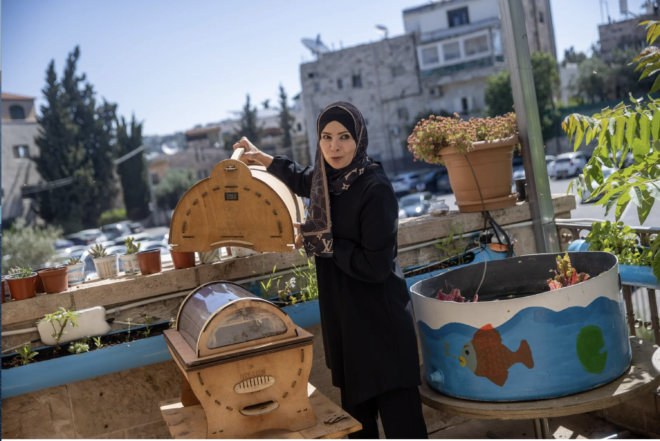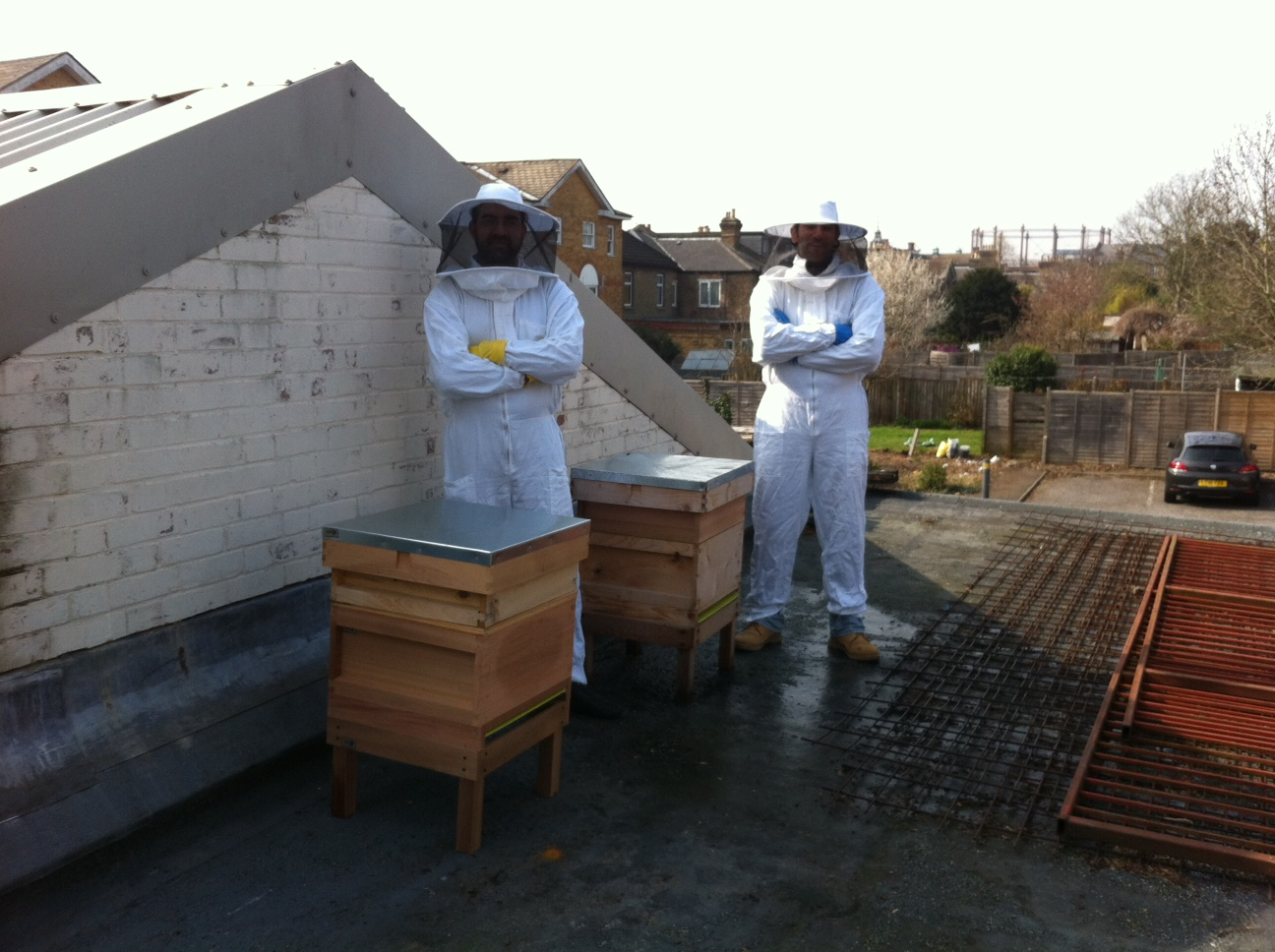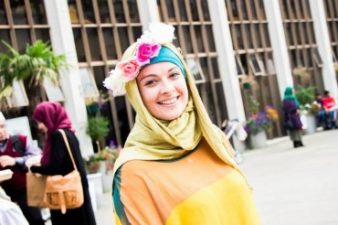 Two mosques in London have taken up beekeeping – and there are plans to encourage more to join the quest to save dwindling bee populations
Two mosques in London have taken up beekeeping – and there are plans to encourage more to join the quest to save dwindling bee populations
When Kingston mosque in London introduced between 10,000 and 15,000 bees onto its premises last summer, the congregation was naturally quite concerned. Would it be safe? Would bee swarms gather at the mosque? Would it be dangerous for children?
However, once local beekeeper Munir Ravalia explained that the beehive wouldn’t be a health and safety risk on the roof, they were pretty eager to find out more. “Once we dealt with worries about safety, lots of people were just curious about how it would all work and when they would be able to get some honey!” explains Munir Ravalia.
A dentist and a committee member at the Kingston Mosque in the UK, Munir states that dwindling bee populations and the medicinal properties of honey pushed him to convince the mosque to host a beehive. “The issue of bee collapse is something we all need to look at, not just as Muslims but as mankind”, he explains. “I really hope that the work we do is changing perceptions of Muslims from some of the negative stuff you see in the media. I want this bee mosque project to show that Muslim care about the wider community and the environment.”
In London, there are lots of urban hives but there are very few in community spaces and there were none on mosques until a year ago. Munir explains that he wanted to change that and also the perceptions of Mosques as place where people just go and pray. “During the time of the prophet, the mosque was like a community centre – it provided everything. I want mosques to become centres of learning for Muslims about all types of issues affecting our lives including the environment and supporting the bee population.”
Working with Aseem Sheikh, Munir who was trained by the UK’s Co-op Urban Beekeeping project is now the mosque’s resident beekeeper. He says that in the summertime, he checks the beehive once a week to make sure they don’t have any diseases and in the winter, when the bees are mostly in hibernation, he monitors them less regularly. The British rain also means that the bees tend to stay in the hives so it’s just a case of keeping them fed and healthy. “We are proof that this project works and that it can help,” adds Munir. “I guess what we want to do next is encourage more mosques to get beehives. In fact we are hoping to roll out a programme in 2013.”
Through their Mosque Bees site, they are hoping to provide information and support to Muslims thinking about introducing a beehive at their mosque. Maybe they can help train Muslim women in areas where they aren’t employed like this beekeeping project in Jerusalem.
Munir explains that while it’s an amazing experience working with bees, you do need to be prepared and well trained to look after yourself and the bees. For example, East London Mosque introduced 40,000 new bees on their roof in 2011 through the hard work of local beekeeper Khalil Attan.
Munir also hopes to educate Muslims about the medicinal properties of honey – a substance lauded in the Qur’an for its healing abilities.“I am a great believer in honey as a Sunnah medicine. In fact, both honey and bees have really important uses for us all and there is even research to show that using the sting of the bee through venom therapy has real benefits too.”

Muslim women in East Jerusalem learn the art of beekeeping (Haaretz)
In the Qur’an it reads: “And they Lord taught the bee to build its cells in hills, on trees and in (men’s) habitations; then to eat all the produce (of the earth), and find with skills the spacious paths of its Lord: there issues from within their bodies a drink of varying colours, wherein is healing for men: verily in this is a Sign for those who give thought.” – 16:68-69.
As an outreach tool, there is no doubt that the beehive has been pivotal. It has stimulated conversation amongst Muslims and their neighbours and helped highlight the vital role bees play in pollination and the food we eat. It is saving the well-being of Muslim women in East Jerusalem who have no skills for employment.
It would be great to see more Muslim communities take on environmental actions that not only benefit the planet but also the health of their neighbourhoods .
For more on bees see:
Bee Stings Are Sweat In Israel: An Interview with a Beekeeper
Could Urban Beekeeping Renegades Buffer Bees from Colony Collapse Disorder?





For newest news you have to visit internet and on internet I found
this web site as a most excellent website for most recent updates.
Our blogging site regarding technology: imageryer.com (Nilda)
Assalamoalaikum, very inspiring project, really liked the idea about beekeeping project in the masjid and involving the community to educate them about our environment. May Allah (SWT) give us more understanding and courage to spread the beauty of Islam in all sort of inspiring and Halal ways as this one.